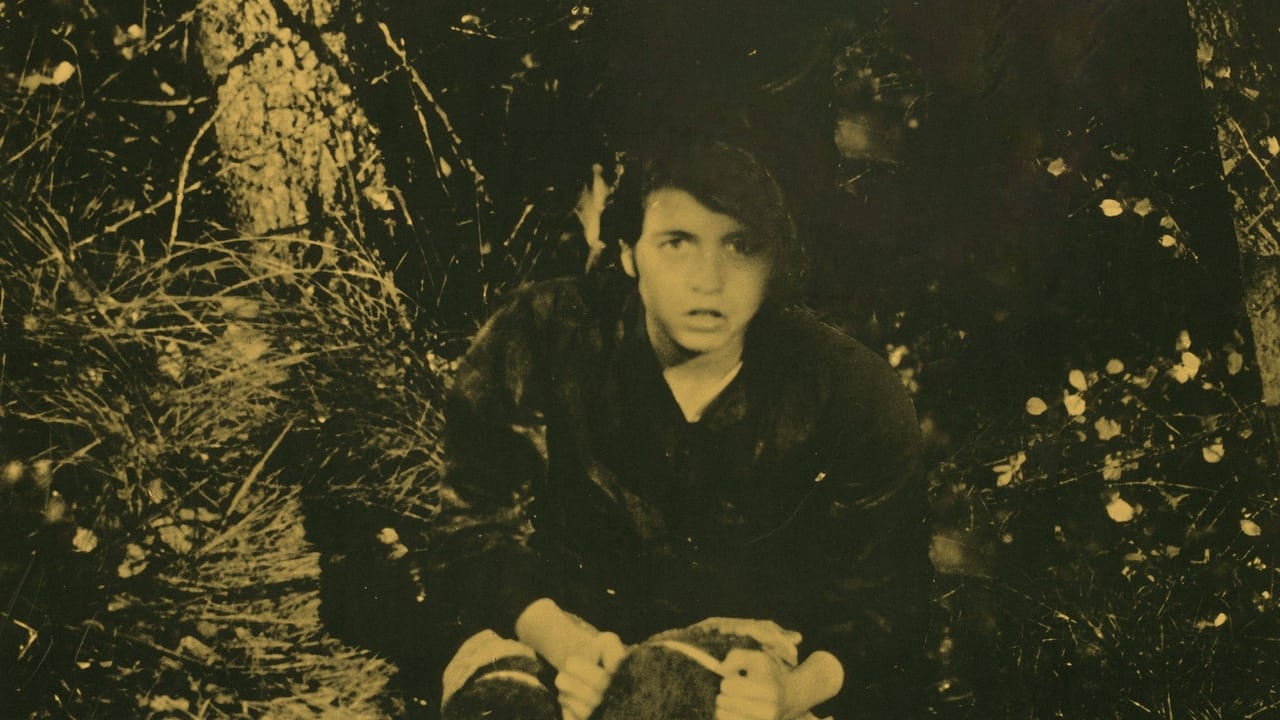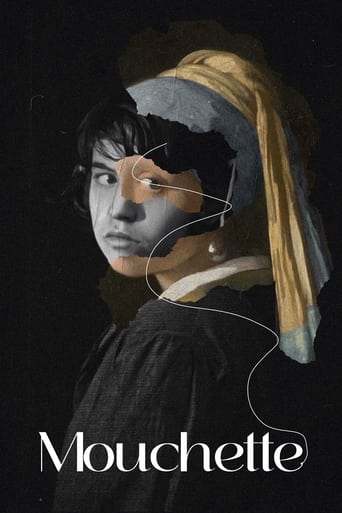

This movie is the proof that the world is becoming a sick and dumb place
... View MoreGood , But It Is Overrated By Some
... View MoreA Masterpiece!
... View MoreThis is a tender, generous movie that likes its characters and presents them as real people, full of flaws and strengths.
... View More"Mouchette" explores the meanness of adolescence, showing us a series of mundane shocks and insults that culminate in disaster. The power here lies not so much in the dramatic - Nadine Nortier as Mouchette does not give up much, emotionally. Mouchette tries to fit in, please her father, have a boyfriend - wanting all the things that a normal teen wants. She is, however, awkward and abused, left mostly to her own devices, and does not understand how to exist in the world. Her attempts to find acceptance and meaning inexorably fail, leaving Mouchette ultimately lost and empty. Her emotional barrenness, resulting from the ways her little world failed her, bit by bit, finally, is the point of this film, and the reason that it works as a spiritual tragedy. Filmed simply and brilliantly, this is a masterpiece.
... View MoreIt's hard to believe that Robert Bresson could muster a strong cast and create a powerful drama with a few dollars, when James Cameron could not do it with $200 million. Bresson simply uses the powerful imagery of a gutsy writer, Georges Bernanos, and makes his film in a rural context of unchanging basic values and prejudices.I have no idea what happened to his lead, Nadine Nortier, but she seems never to have appeared in another film --- that has to be most unusual for an actress showing such talent. Her ravisher, Jean-Claude Guilbert, also seems never to have acted again. So here we have two excellent performances from amateurs who never acted again (as far as we can tell), working for a brainy French film-maker who made 16 feature-films in his 98 year-long life.The directorial method consists of as little dialogue as possible, and plenty of symbolic actions, often balancing out in different scenes. Bresson is working in the Euro-world of other heavies such as Ingmar Bergman, and money has nothing to do with it. It's a world of ideas and movements.In Mouchette, a pubescent girl in a disadvantaged situation is misused by a drunken fellow villager. Her very difficult and complicated night trying both to live up to her idea of womanhood and to fend off her rapist creates great conflict within her that after a couple of days trying to cope she deals with by self-destruction.An unhappy ending usually spells death for all but very particular films, and this one is cited by Criterion as a world classic, but can only muster 15 comments on IMDb. So we see that few are interested in the work of big minds.
... View MoreSixteen years after having successfully exploited Georges Bernanos' universe for his "Journal d'Un Curé De Campagne" (1951), Robert Bresson appropriates once again another book by the French writer: "Mouchette" for a very personal, stylish rendering and a canonical film about stolen childhood. The filmmaker always supported that he'd prefer a film to be felt rather than to be understood. Needless to say we leave the projection with a big emotion inside us and we also feel helpless about Mouchette' terrible life. According to Bresson, Mouchette's tragic fate enabled him to put forward "misery, cruelty. They're everywhere: wars, tortures, murders".The film starts with Arsène's and the gamekeeper's eyes staring at quails and partridges that desperately try to free themselves from snares. This harrowing introduction sequence sets the scene for what follows after wards. How not to think of a metaphor for Mouchette's life that offers her no horizon and no hope? This teenage girl is all alone and in spite of her young age, she has to take care of her sick mother, her alcoholic father and her baby brother. She goes to school but feels rejected by her female fellow students, notably when school's over, they stone her. It's the same thing every day and Mouchette is trapped in her loneliness. That's why the sequence at the fair comes as a sort of relief for her. The scene at the bumper cars provides her momentary solace and joy. Then, the key sequence with Arsène will make her open her eyes about what she really wants. In spite of her poverty and solitude, Mouchette needs to love but where to find it in a hostile world?Mouchette strongly belongs to the Bressonian world. She's an outcast and she can't integrate herself to her surrounding. Once again, Bresson underscores the opposition between a pure, subjective person and an objective, hostile world in a sparse, minimal directing with a supremacy granted to images and sounds and the evident symbols they convey. An eloquent example would be when the little girl is all alone in the country and can hear the sound of guns and can see rabbits running or dying. She hasn't got a friend or even one member of her family to talk to. When she wants to tell her mother what Arsène did to her, she dies. Fate dogs her. There's no room for the weak and there's one last exit left... Bresson's austere, intensely visual making fits the story and its themes like a glove and if you don't feel anything during the last sequence, you have a heart of stone.
... View MoreSublime film from Robert Bresson!Actually it was my first encounter with Bresson's work, five or six weeks ago. I was so eager to see it...Bresson's films ("Mouchette" and "Au hasard Balthazar") haven't disappointed me- to see the least!"Mouchette" is such a pure film, so sublime. So powerful. When I saw this film, it really blew me away totally. So overwhelming. But now, weeks after that experience (I saw that films more than once, btw) it's still beginning to gain more power and emotion."Mouchette" has such overwhelming, graceful, brilliant images, shots and scenes. The opening scene may be the best ever: brilliant and pure, it tells everything you will see in the next hour and twenty minutes. The use of the music, sublime sounds of Monteverdi, is unique, powerful and brilliant. No more than- what is it?- ten seconds or so it can be heard. The opening scene is so short...That's the power of Bresson: images, sounds, scenes are presented in such a brilliant way. When we are beginning to be attached to them, other images and shots are already presented. As a viewer, you can't really be attached totally by them. That's way these images, shots, scenes will be in your mind long after the film: all things, all scenes and situations, and especially all emotions (if they are shown at all) are shown in actually too short a time, that you, as a viewer, will be forced to "finish" them. You are forced to locate the emotions not shown, to locate the situations and details which are only suggestively shown. Bresson's editing is just brilliant, bt it may take some time before you are aware of that.Some of the most brilliant scenes ever are presented here: Mouchette, forced to go into church by her father; Mouchette's brilliantly and superbly simple introduction to the viewer. Most notable for me, besides the ending scene of course, is the scene with Mouchette in the dodgem cars, having her only small feelings of joy and relieve. The expressions and emotions shown in this really magnificent scene, maybe the best and most emotional I've ever witnessed, are to diverse to even describe them. Just watch this scene...Nadine Nortier, playing Mouchette, blew me away with her magnificent acting. So pure, sublime, graceful and heartfelt. One of the most striking peaces of "acting" I've ever seen...!This superb film will be in my mind for ever, just like "Au hasard Balthazar". Nobody, not even the best like Dreyer, Ozu, Bergman and Tarkovsky, can present stories, images and "emotions" in such a superbly simple, transcendental and pure way as Bresson.Masterpiece!
... View More